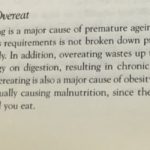
Hi,
50 Ways to Save the Planet Contrary to popular belief, what you don’t know could hurt you, meaning that if we want to protect this planet, its inhabitants and future generations from destruction, we need to be aware of the impact our lifestyles have on the environment – and actually do something about it.
Amazon #ads

The mind-boggling numbers are there. According to government statistics, in the UK alone we dispose of a staggering 180 million tonnes of waste a year and that includes 972 million plastic bottles, 468 million batteries and six billion disposable nappies.
The underlying problem is that we live in a material world, wherever increasing numbers of mobile phones, laptops, cars and electronic gadgets are being manufactured around the globe. According to Green Star (www.greenstar.org), a non-profit organisation, consumer electronics make up 40 per cent of the lead found in landfills. And that’s not including the “chemical world” we’ve created. Based on World Wildlife Fund reports, in the last 50 years 80,000 new chemicals have been formulated for everything we use – from cosmetics and baby bottles to furniture and electronic gadgets.
Recycling is crucial if we want to keep a lid on pollution and the growth of landfills. But even more crucial is changing our mindset and lifestyles to decrease the amount of waste we create in the first place. This is where the real challenge lies.
Here are 50 straightforward things you can do to start making a real difference to your impact on the environment:
1. Don’t leave the tap running
You only need one glassful of water when brushing your teeth. For every minute the tap runs, you waste at least 10 litres. Whenever possible, put the plug in rather than washing hands under a running hot tap. You could save approximately ฃ15 per year. Replace washers on dripping taps – in just one day you might be wasting enough hot water to fill a bath.
2. Take showers not baths
A five-minute shower uses about a third of the water of a bath, which consumes an average of 80 to 200 litres of water. But remember that power showers can use more water than a bath in less than five minutes.
3. Reuse gift-wrap
Help cut down on the consumption of paper and plastic by reusing wrapping paper, ribbons, bows, and gift bags. These items should be good for at least one more wrapping. If you are feeling creative, use pages from magazines or even newspaper to wrap gifts. (Paras note: Or just don’t wrap)
4. Switch to organic, fragrance-free products. Many fragranced products contain chemical compounds that are related to neurotoxins and pesticides. For environmentally friendly alternatives, try www.gogreen.cellande.co.uk or
www.alotoforganics.co.uk
5. Reduce formaldehyde levels at home
Formaldehyde is the most common indoor air pollutant – found in foam insulation, heaters, coatings on furniture and flooring, and in hair sprays, nail varnish and even the clothes we wear. Excessive levels of formaldehyde can be harmful to our health. Symptoms include irritation of the eyes and mucous membranes, headaches, difficulty in breathing and a burning sensation in the throat. While we cannot totally eliminate formaldehyde, we can at least reduce levels by not using hairspray, one of the worst offenders. High humidity and moisture also promote the release of formaldehyde, so increasing levels of ventilation will also help.
6. Use recycled toilet paper
Chlorine is used to bleach toilet paper, tissues, kitchen rolls and feminine hygiene products and, during this process, toxic by-products and dioxins are unleashed into the environment. Choose products that have a high percentage of recycled paper – the Co-op’s recycled toilet tissue is made from 100% recycled material. Also try Essential Trading Luxury toilet tissues, which are unbleached and un-dyed. Call 0845 458 0201 to find a local supplier.
7. Quit smoking
Apart from the obvious risks to your health, second-hand smoke is a major indoor air pollutant. Also, stale cigarette odours linger for a long time on clothes and hair, prompting more frequent use of chemical-laden toiletries and dry-cleaning.
8. Wash at lower temperatures
A lower temperature of 40ฐC is hot enough to wash whites and soiled garments. This saves up to three-quarters of the cost of washing at boil-wash cycle. Always make sure your washing machine has a full load.
9. Minimise dry-cleaning
Almost all drycleaners use the toxic chlorinated solvent perchloroethylene. If your garment has to be dry-cleaned, find a dry-cleaner who uses the eco-friendly GreenEarth Cleaning process, which utilises a biodegradable siloxane, derived from silica (sand). It does not leave a chemical odour and is gentle on clothes and the environment. For more information, visit www.harpersdrycleaners.co.uk and www.greenearth.co.uk
10. Hand-wash clothes
Hand-washing clothes with a gentle, eco-friendly detergent will make your clothes last longer and also saves on electricity.
11. Hang clothes to dry
Invest in a sturdy clothes-horse and let clothes dry naturally. Electric tumble dryers are commonly the second biggest energy user in the home, after the fridge, while placing clothes on radiators lowers the room temperature, forcing the boiler to work harder
12. Use natural ingredients for home cleaning Vinegar and lemon juice are perfect for cleaning glass and removing stains from clothes, porcelain and aluminium. Mineral oil, derived from seeds, can be used to wax floors and polish furniture. You can also try Arm and Hammer baking soda detergents – www.armandhammer.com.
13. Turn the thermostat down
Don’t turn the thermostat up if there’s a nip in the air, wear warmer clothes and have a throw blanket ready on the sofa. Turning room thermostats down by just 1ฐ could cut up to 10 per cent off your fuel bill.
14. Keep radiators clear
Never cover radiators with curtains or furniture as this reduces their efficiency by 30 per cent and wastes valuable heat.
15. Turn electric ovens off earlyUnlike gas cookers where the heat can be immediately switched off, electric cookers take longer to cool down, so you can save energy by turning the heat off earlier than normally required.
16. Chest is best
Chest freezers have thicker insulation, meaning they use half as much energy for any given volume of food storage. For example, a 4.5 cu.ft upright freezer will usually consume more energy than a 9 cu.ft chest model.
17. Fill empty space in the freezer
Try to keep your freezer at least three quarters full at all times. Fill free shelves with empty cardboard boxes or with loaves of sliced bread to reduce airflow. Also, make sure that the freezer and fridge doors are closed properly to prevent warm air from getting in and cold air from escaping – it takes a freezer up to 30 minutes to regain its temperature when a door has been left open for a minute. If you can’t trap a piece of paper in the door, the seal probably needs replacing.
18. Drink filtered tap water
Filter your drinking water with activated charcoal to remove the bulk of chlorinated compounds before the water is boiled. Find out more here.
19. Switch off all office equipment before weekend. Apart from saving on energy and cost, this will help stop your computer or electrical equipment from wearing out.
20. Switch off computer monitor during lunch break Most CRT type screens (not flat screens) use between 30 to 200 watts per hour. Size does not matter – a 14-inch screen often uses just as much power as a 17-inch. The sleep mode is designed to protect the phosphor coating from getting damaged, not save energy. The screen still uses energy even when it is in sleep mode, saving only around 10 watts. Turn it off manually and save up to 120 watts.
21. Buy an eco-friendly laptop
Yes, there is such a thing as an eco-friendly computer. Toshiba is selling the first Restriction on Hazardous Substance (RoHS) laptop – the 15-inch Toshiba Satellite A55-S1064.
22. Don’t leave appliances on standby
A staggering ฃ150 million-worth of electricity is wasted every year because TVs and VCRs are left on standby overnight or for longer periods. If plugged in, mobile phone chargers also use energy even when not charging.
23. Keep air circulating
Office equipment like printers, copiers and fax machines release toxic gases (VOCs) when operating. Air purifiers only remove dust and pollen but not chemicals. Open the window and allow the air to circulate.
24. Switch off your boiler when going on holiday. Why waste electricity and hot water you’re not going to use? Ask someone you know to switch the boiler back on when you are due to return, so you have hot water on arrival.
25. Use energy-saving light bulbs
Energy-saving light bulbs last up to ten times longer than regular light bulbs and use only a quarter of the electricity. Bear in mind, however, that they cannot be used with electronic timers or dimmer switches.
26. Use the right sized pan when cooking
If boiling an egg, use an egg pan and the smallest hob to save on energy. When boiling vegetables, use just enough water to keep them covered. Always use saucepans with lids whenever possible to reduce cooking time.
27. More vegetables, less meat
To produce one pound of beef requires 2,500 gallons of water – that’s 40 times more water than is used to produce a pound of potatoes. There are also the health issues involving the use of antibiotics and hormones in the meat industry. We don’t actually need that much meat – there are many more organic, plant-based sources of minerals and vitamins.
28. Walk or bike
Always consider alternatives to driving, especially for journeys under two miles. Walking or cycling is not only better for the environment, it’s better for your health and pocket. Consider the reduction in traffic, pollution and your petrol bill. If you have to use a car to get to work, organise or join a car-sharing scheme.
29. Kettle know-how
De-scale electric kettles regularly – the build up of scale means it takes more energy to boil the same amount of water. Only fill the kettle with the water you need – reducing carbon dioxide emissions by 20gms a day
30. Don’t keep the car engine running
If you’re waiting in your car, switch off the engine and stop polluting the neighbourhood with toxic fumes.
31. Take the train or bus
Why stress yourself out about traffic, the price of petrol and getting lost when you can enjoy a journey on public transport, watching the scenery or catching up on reading or paperwork. (Paras note: Preach on baby)
32. Drive safely and efficiently
Cutting your average speed by 10mph burns up to 30% less petrol. Avoid unnecessary sudden acceleration and braking – this only increases fuel consumption and wears out your car’s engine. Driving efficiently and sensibly not only saves money and the environment, it saves lives.
33. Don’t dispose, reuse!
Use sponges and rags instead of paper towels. Replace disposable shavers with reusable razors. Invest in coffee makers with reusable mesh instead of using paper filters. Avoid using aerosols – use pump sprays or burn candles or incense to freshen the air instead.
34. Stop using plastic bags
An estimated 500 billion – one trillion plastics bags are used worldwide each year, translating into one million bags used per minute. They break down into toxic waste, polluting our soil, oceans and rivers and killing countless marine animals and flora. Buy a few canvas or reusable shopping bags for your next trip to the supermarket. Lobby for plastic bag consumption tax – there are strong arguments for and against this, but in Ireland and Germany, where shops do not give plastic bags out for free, 99% of shoppers bring their own bags. Visit www.reusablebags.com
35. Forget pre-rinsing
Pre-rinsing dishes does not necessarily improve a dishwasher’s ability to clean them. By skipping the wash before the wash, you can save up to 20 gallons of water per dish-load. At one load a day, that’s 7,300 gallons over the course of the year. Not to mention that you’re saving time, dishwashing soap, and the energy used to heat the additional water.
36. Buy eggs in cardboard cartons
Cardboard egg cartons are normally made from recycled paper, which biodegrades relatively quickly, and are also recyclable. Styrofoam or plastic cartons take a much longer time to biodegrade and their manufacture produces harmful by-products.
37. Get off your butt
Collect rainwater for your garden in a water butt. These are easily plumbed into your existing guttering and down pipes.
38. Remove yourself from junk mail databases Stop the daily deluge of wasteful junk mail by registering with the Mail Preference Service – www.dmaconsumers.org – who will remove you from lists. Next time you apply for a store card or magazine subscription, make sure you tick the box that explicitly says you do not want to receive mail from third party companies.
39. Support local grocers
Supermarket chains are the worst culprits for plastic packaging. Buy groceries from your local butcher, fishmonger and grocer: not only do you get fresher products, you eliminate unnecessary plastic packaging. Bring your own carrier bags.
40. Recycle as much as you can
Recycle paper, tin cans, plastic bottles, clothes, glass and mobile phones. And don’t throw away batteries, antifreeze, paint, motor oil, or chemicals in the bin. Use proper disposal sites.
41. Turn off unnecessary lighting
In most homes, about 10-15% of the electricity bill is for lighting so energy-saving light bulbs can cut your costs considerably. Unless it is for safety reasons, turn off lights in corridors. If you’re watching TV in the living room, switch off lights in any other rooms not being used.
42. Don’t overfill the kettle
Save water and electricity by filling your kettle with the number of cups of water you actually need. For every mug of tea it takes the kettle up to a minute to boil and this consumes about 2,400 watts.
43. Invest in a digital camera
Film processing and developing requires the use of toxic chemicals and also uses up unnecessary paper.
44. Draw curtains at dusk in winter
Closing curtains at dusk will stop heat escaping and reduce draughts, saving you between ฃ10-ฃ20 per year.
45. Go organic in the garden
Switch to organic gardening methods such as substituting non-chemical weed-killers. Compost kitchen and garden waste and use this as an alternative to artificial fertiliser.
46. Remove shoes when entering your home Roadside soil can be poisoned with lead from car fumes. When dragged into the house, this contributes to the toxins, which settle on the carpet.
47. Consider replacing the carpet with wooden floors Carpets hold up to a hundred times the amount of dust as bare flooring and are also a breeding ground for mites. And the deeper the pile, the harder it is to remove the dust-allergens to which children are especially susceptible.
48. Switch to solar in the garden
There are a number of different solar powered lights available at the moment for use in the garden. These lights are highly energy efficient and convenient, as they do not require external extension leads or special electric fittings.
49. Insulate your house
Insulation is one of the best ways to reduce heating bills and cut CO2 emissions. Also, replace old windows and be sure to seal holes and cracks in your house. A well-insulated house can prevent hundreds of pounds of CO2 emissions per year and can cut your heating bills by up to 20 per cent.
50. Plant a tree with a child
It may be even harder to talk sense to a sulky teenager than to a small child, but it’s worth a try. It’s never too early to teach children to care for the environment and the planet they live in. This is their future we’re talking about.




